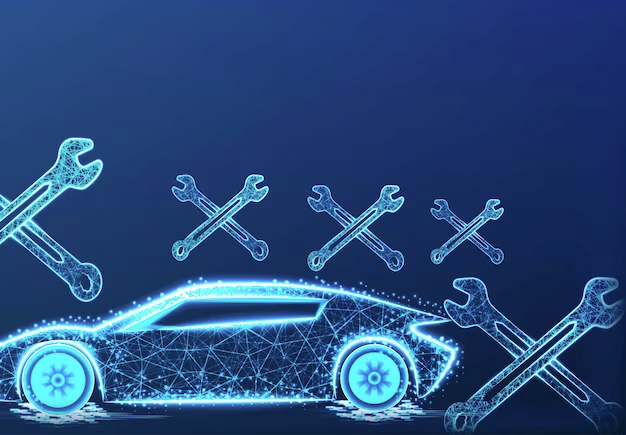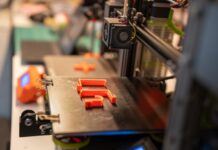Do you think blockchain technology is only useful in the industries of finance and logistics? Rethink that!
Blockchain technology, which at first provided the foundation for financial transactions involving cryptocurrencies, has developed into an impermeable virtual ledger with the ability to record and support significant amounts of transactional activity. It is currently extending its reach to include a wide range of sectors.
Entrepreneurs are enthusiastically investigating the potential of blockchain technology in other industries as it continues to transform the financial world. One particularly exciting development is occurring in the automobile sector, where blockchain technologies have shown incredible promise. Understanding how blockchain has adapted to and integrated into the automotive industry, offering great solutions to industrial difficulties and methodically boosting efficiency, is crucial to properly appreciating the fundamental advantages it offers in this context.
Current Automotive Industry Challenges
With a focus on digitalization and sustainable systems, the automobile industry has continually attempted to stay on top of trends, adapt tactics, and develop new and more effective ways of production. Rapid development, meanwhile, also brings about fresh difficulties. The following are some of the major challenges the automotive industry is now facing:
History of Automobile Tracking
In the event that production problems are discovered after the vehicles have been distributed and sold, there is currently no method in place to track down and find the automobiles. As a result, recalling cars becomes time-consuming and expensive. Furthermore, because it is difficult to identify stolen cars, tampered parts, and other irregularities due to a lack of ownership history and chain of custody information, it puts automotive companies at risk of fraud in the used car market and the sale of counterfeit spare parts.
Improvements in Self-Driving Cars
Self-driving cars have become a technology that the automobile industry has heavily embraced in recent years. Self-driving cars have significantly increased in popularity with the arrival of electric automobiles on the market, capturing the interest of both investors and consumers. To ensure the safety of the vehicle and its occupants, the functioning of these autonomous cars requires the storage, organization, and interpretation of enormous volumes of data, even in bustling urban areas like used cars in San Diego Although many different methods have been tried to manage this data securely and effectively, a perfect system has not yet been developed.
False Insurance Claims
Due to fraudulent insurance claims and insurance losses, automotive firms suffer considerable financial losses every year. Legitimate claims are frequently inflated or misrepresented, while others are wholly made up. Sadly, there is currently no organized method in place to detect and get rid of these phony insurance claims.
Selling of Fake Spare Parts
The proliferation of fake parts continues to be a persistent problem in the automotive sector. Despite great progress, the industry has had trouble reducing the monetary losses brought on by the sale of fake spare parts. Such losses not only have a negative financial impact on businesses but also put consumer safety at risk, which eventually damages the reputation of car brands. The failure to efficiently trace spare parts along the supply chain allows for the unnoticed entry of counterfeiters.
Rental-Car Services
It is critical to assess the dependability and safety of transportation and car-sharing services as they proliferate. Although car-sharing programs are widely used, they are far from ideal and contain significant systematic flaws.
The Advantages of Blockchain for the Automotive Industry
Blockchain technology’s impenetrable decentralized technology, transparency, and well-established system can benefit the auto industry. It may be the key to improving auto safety, efficacy, and autonomy.
The automotive industry may benefit from blockchain technology in the ways listed below:
Security and Openness
By giving every participant in the network access to all financial transactions and contracts, blockchain technology drastically lowers the risks involved in transactions. Since each transaction is securely documented without the potential for tampering, this openness allows businesses to choose suppliers without being vulnerable to losses brought on by phony supplies and knockoff parts.
In an industry that primarily depends on raw materials sourced from various suppliers abroad, resulting in complex supply chains where inconsistencies are difficult to uncover, smart contracts made using blockchains are binding and unchangeable, which is a critical aspect. The degree of security and transparency provided by blockchain technology has the potential to be revolutionary.
Efficiency and Management
The management of documentation, traceability, quality control, and contracts must be done effectively because automotive firms work with numerous suppliers and intermediaries at once. Blockchain technology simplifies management procedures by streamlining and organizing contracts, financial transactions, order placements, and other pertinent information. This guarantees that both suppliers and businesses can make wise financial judgments and carry out contracts without mistakes or malice.
The blockchain not only enables the business to halt payment and look into the process in the event of an incomplete, damaged, or lost order, but it also gives an exact record of the original components, identifying any modifications, manufacturing flaws, or violations of the contract.
Cost-Effectiveness
The superior management and security features of blockchain help cut costs in divisions like audit, reporting, and reviewing. Additionally, blockchain technology lowers production costs by doing away with the necessity for middlemen in financial transactions. By maximizing resource use, its great efficiency raises manufacturing capacity even higher. Digitalization and the blockchain-based vehicle trackability it offers make meeting regulatory requirements simple.
User-Friendly
Blockchain technology has made it possible for consumers to buy things with complete transparency regarding the history of the product, the manufacturing process, and the sources. The verification, ownership transfer, and retail procedures are simplified, removing the need for time-consuming documentation and the threat of fraud. Higher product quality is ensured while production costs are decreased via an effective supply network.
Data Retention
A blockchain offers an infinite platform for data storage, management, and analysis. This feature is especially important given the state of the automotive industry today, where the electrification of cars and the emergence of self-driving technologies require the storage and efficient use of vast amounts of data to guarantee passenger safety. Blockchains can safely store sensor data, allowing for the most effective operation of moving objects.
Blockchain Integration with the Automotive Industry
Blockchain technology has the potential to transform every aspect of the automotive industry, from financing and manufacturing to distribution and regulation. It has numerous and diverse applications. Here are some particular car usage cases:
Vehicle virtual documentation
The existing system leaves potential for fabricated records because there is no surefire way to verify the correctness of promised specs when buying a used car. Buyers can gain access to trustworthy information about the history of the car through blockchain-based virtual passports.
Safe Online Insurance
Through a blockchain-based system, insurance claim negotiations and settlements can be handled digitally. In order to avoid laborious paperwork and manual procedures, insurance firms might offer pricing insights based on the vehicle’s prior driving history, condition, and prior claims. Insurance fraud would be impossible as a result.
Rental-Car Services
By eliminating middlemen, a decentralized car-sharing system might be introduced, allowing users to communicate with drivers directly. Smart contracts can guarantee that drivers are paid when passengers arrive at their intended locations, ensuring the security and dependability of the transaction.
Car-sharing companies can use blockchains to maintain current rental histories and locate the culprit in the event of an accident. Blockchain technology can also help with automated lease renewal and usage-based price computation.
Anti-Piracy Solutions
Counterfeiting can be successfully stopped by using blockchain to link all parties into a single supply chain. A common blockchain can be used to connect all automotive supply chains, giving manufacturers the ability to spot supply chain flaws. The “Internet of Things” and blockchain can be used to track down and identify fake parts, as well as hold their producers accountable.
Significant Obstacles for Blockchain
Although blockchain technology has a lot to offer the automotive sector, there are a few key issues that must be taken into account before it enters the unknown world of cars:
Information Protection
Protecting a company’s confidential information is essential given that blockchains offer complete transparency and data accessibility to all network participants. It’s crucial to modify the transaction visibility settings to protect business privacy and stop data breaches.
Coding Requirement
As blockchain sets high expectations for code quality because of its relevance in significant financial transactions, it is crucial to ensure consistent and unambiguous coding in smart contracts. Making changes to a smart contract after it has been put into use can be difficult and expensive.
Contract with Subcontractor
It is crucial to guarantee that all suppliers and subcontractors use the platform when moving business operations to a blockchain-based system. The requirement for external engagement is reduced when all vendors are incorporated into the blockchain and a company can function solely within the system.
Conclusion
With the widespread use of blockchain technology, it follows that both the automobile sector and blockchain technology will change to accommodate one another’s unique needs. Numerous and practical blockchain applications in the automobile sector are possible, opening the door for fresh ideas and advancements.
Author Bio
With a passion for blockchain technology and creativity, I am always interested in crafting unique digital experiences that bridge art and technology. Through my expertise in blockchain development services in USA, I strive to revolutionize the digital art landscape, empowering artists and collectors to embrace the limitless potential of blockchain technology.








